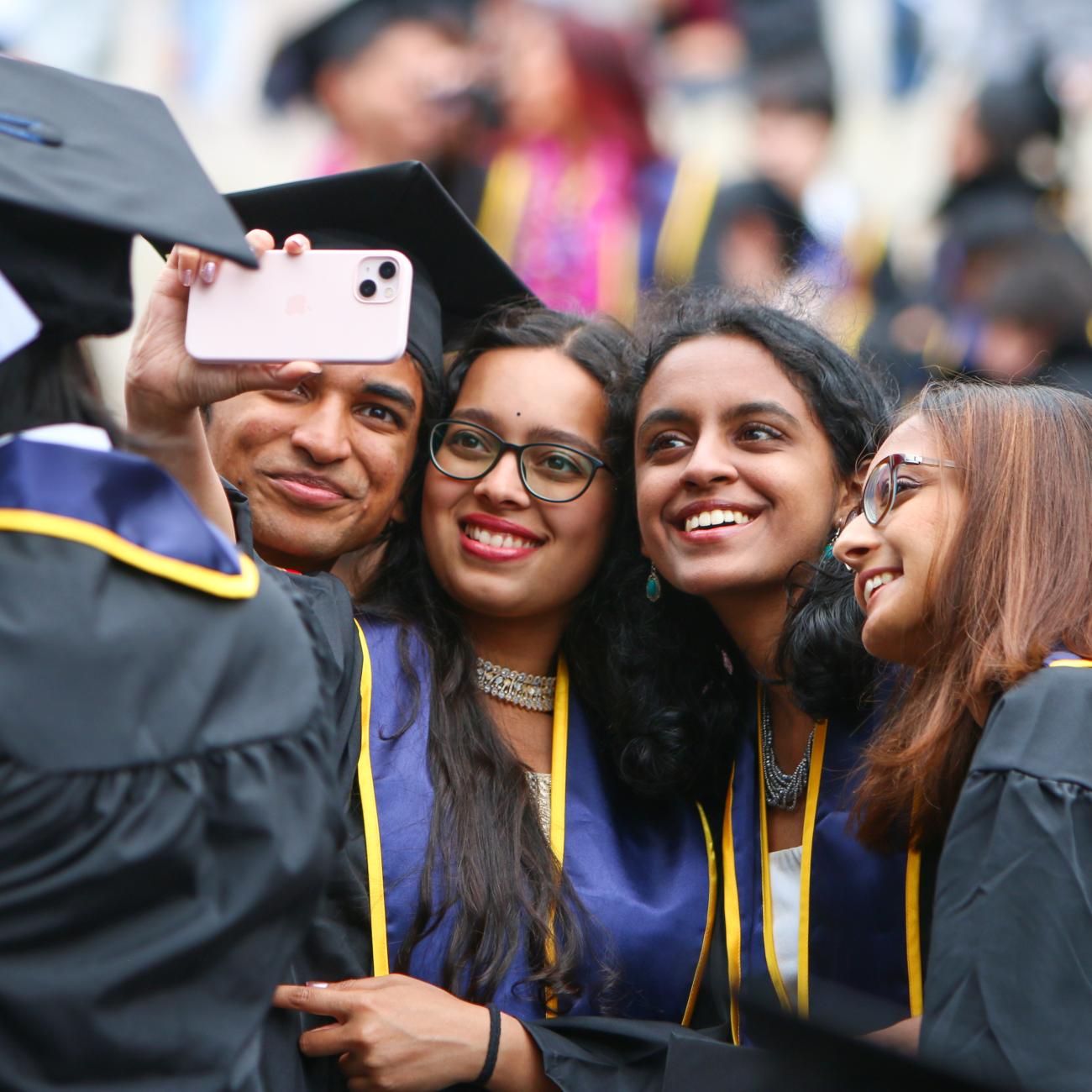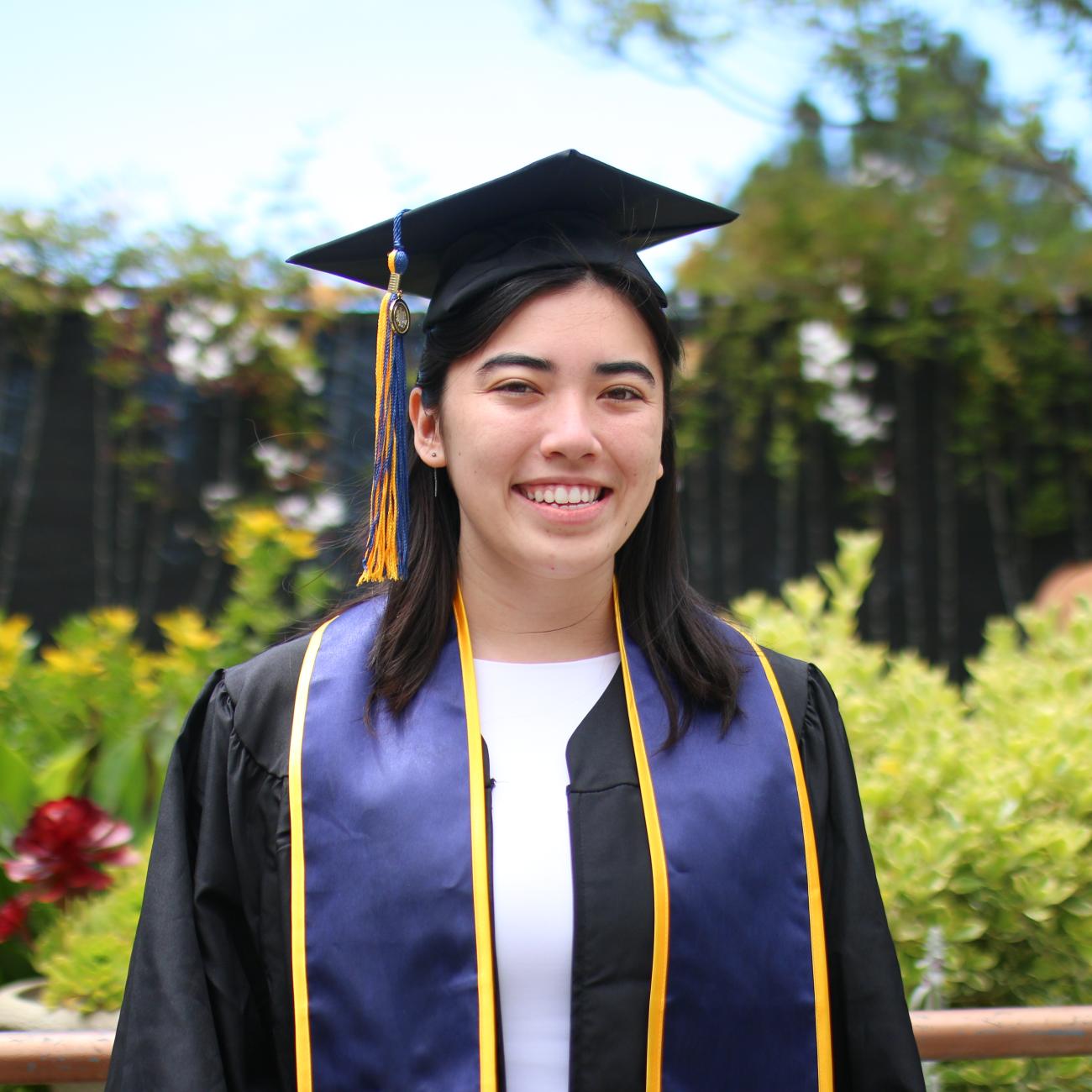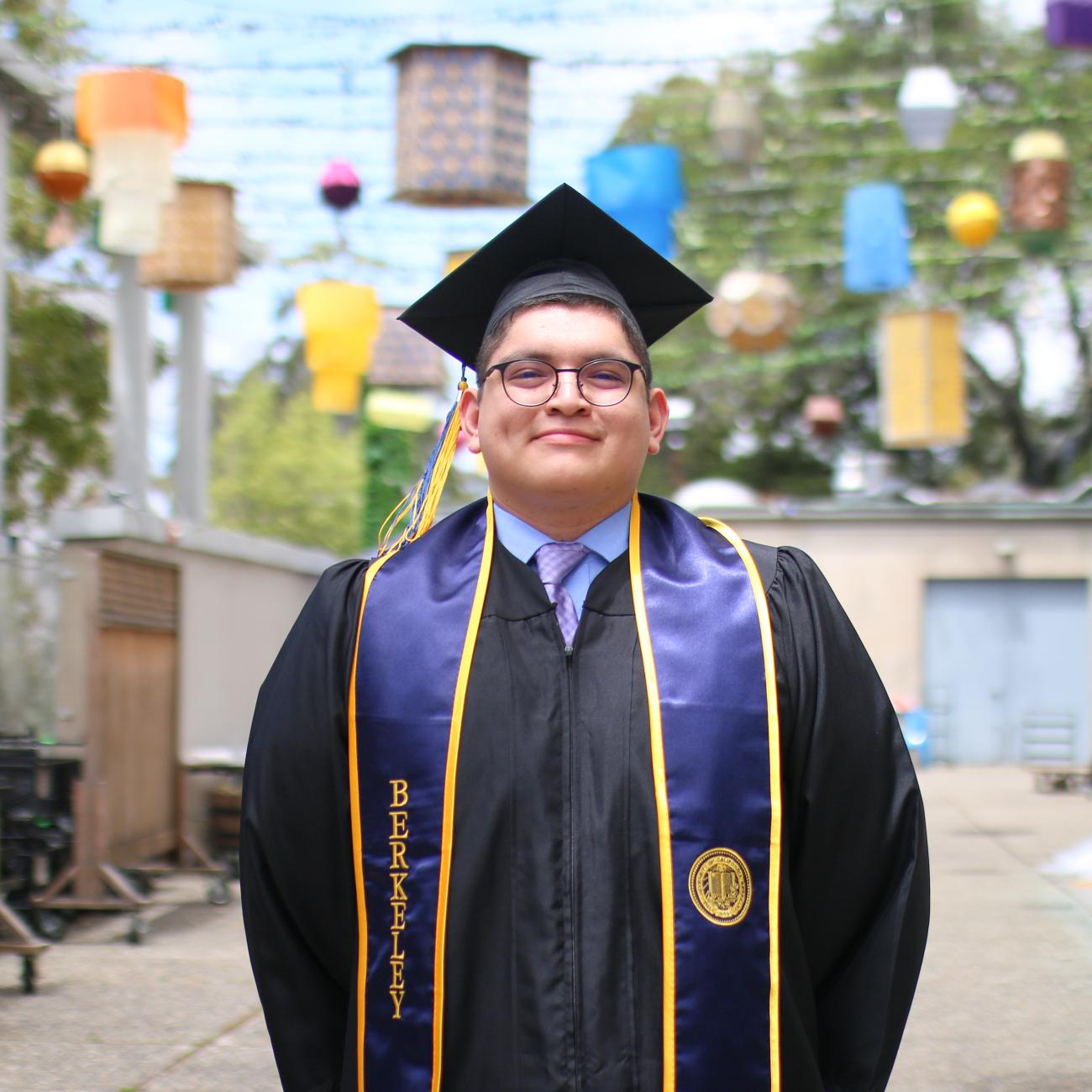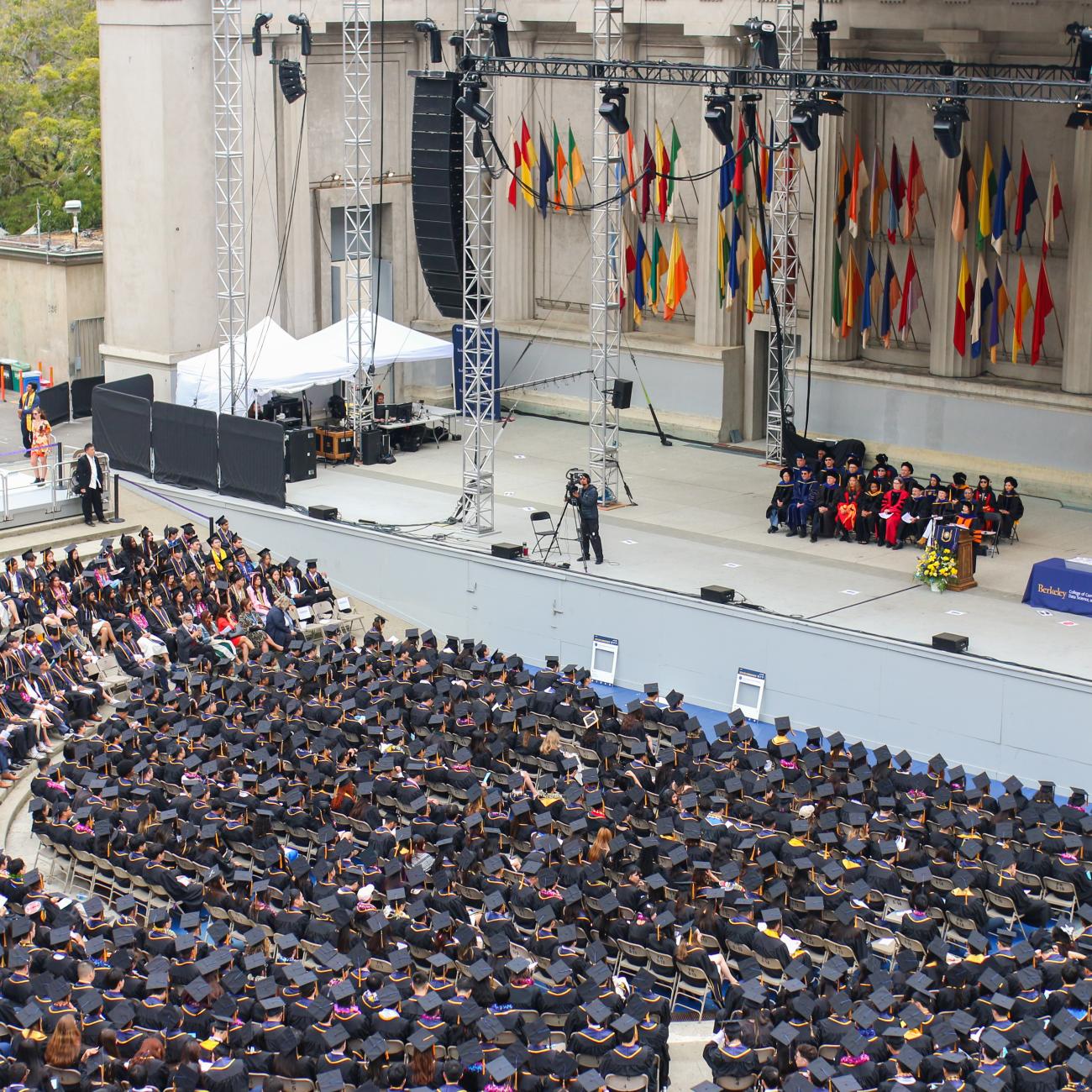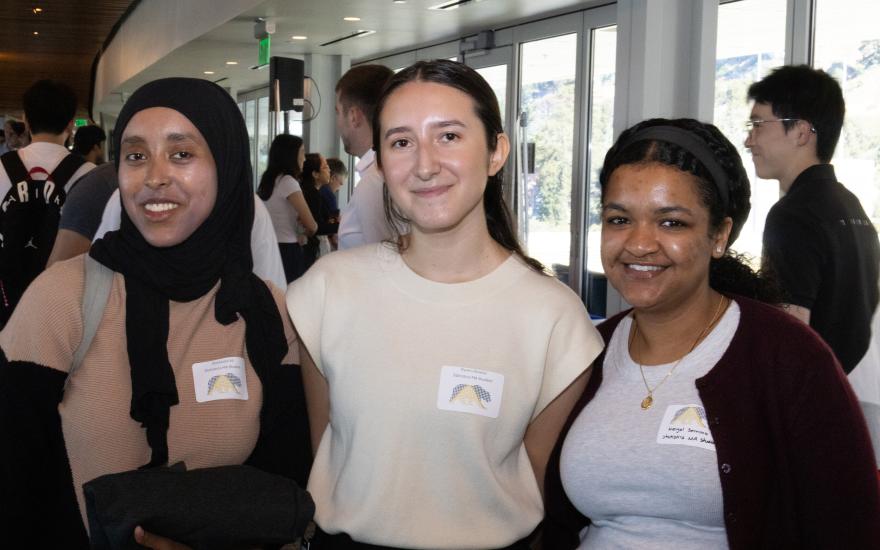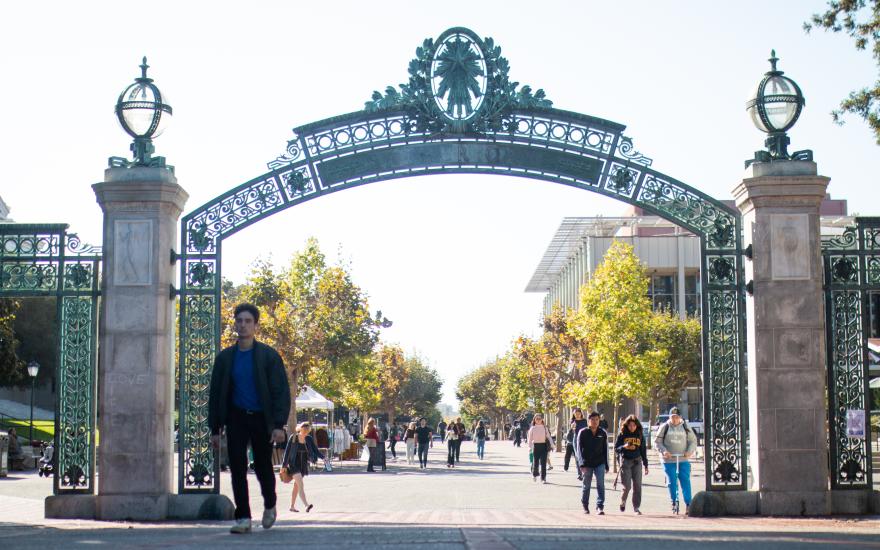Ashley Santos always knew she wanted a career in STEM. But her path to her first technology job wasn’t easy. She started at community college, instead of a four-year program like she’d planned. She began studying late at night during the pandemic so she could learn in quiet spaces. And she took difficult classes like calculus online, struggling through the work.
Once she reached UC Berkeley, Santos dedicated herself to giving back. She volunteered everywhere from the Data Science Undergraduate Studies program to the Latinx Business Association. She provided school and career support to students like her – first-generation college, Latinx and transfer students. This Thursday, six years after starting college, she graduated with a data science degree and job. She had one more piece of advice.
“When I tell people, ‘Yeah, this is my fifth year. This is my sixth year,’ it can sometimes lead to feelings of insecurity or doubt,” said Santos, who will soon be a data scientist at Warner Bros. “I think what has pushed me through is the fact that it is okay to take as long as you need because at the end of your journey, you're going to be exactly where you're supposed to be.”
Santos is one of more than 2,200 Berkeley undergraduate students to earn their degree in data science, computer science or statistics this year. At the Berkeley College of Computing, Data Science, and Society’s two inaugural commencements on Thursday, speakers lauded the students’ resilience.
“You have achieved an impressive feat, not only because you’ve completed a demanding curriculum, but also because you’ve been doing this during a time of historic change and challenge, beginning with a global pandemic and now – during your years here – widespread social unrest,” said Jennifer Chayes, dean of the new college that graduated its first class of these existing majors. “We know this has not been easy. We are so glad you chose to be here today so that we can celebrate your accomplishments.”
DJ Patil, the commencement keynote speaker and first-ever U.S. Chief Data Scientist, lauded the graduates’ grit and determination. These skills, alongside their first-rate education, have equipped them well to use data to help solve urgent, intractable societal problems from climate change to healthcare, he said.
“Each of you has walked your own path to get here,” said Patil, who is also the Dean’s Senior Fellow at the college. “I need you to know this. Because you are here. Because you persevered. Because you made it to this moment… you are and forever will be part of Team Data. And the world needs you now more than ever.”
Applicable skills, large aspirations
Attending college during a global pandemic affected students’ college experiences, graduates said. It sometimes was harder to make friends online, to get particularly engaged in a large lecture course or to learn complex subjects.
There were also silver linings. Kate Colvin, a student graduating with degrees in public health and statistics, had always found statistics useful and enjoyable. But the pandemic also made her majors feel incredibly “interesting and important” for society, she said.
“There are hundreds and hundreds of factors that impact the trajectory of an epidemic, or a pandemic, in this case,” said Colvin, who plans to attend Columbia University to earn a Ph.D. in biostatistics. “That's what I like about questions in public health and where I think statistics can be very useful.”
This year's graduates are ready to put these hard-earned skills into practice. Some are aiming high, aspiring to use technology to help the public. Take Carlos Rodrigo Huerta Juarez, who earned a degree in computer science.
The graduate, who was born in Mexico City, wants to use language processing to improve communication and connection for individuals who are linguistically isolated. He became passionate about this work when he volunteered teaching English to adults during high school and later when he met international students at Berkeley.
“There's always this struggle of not being able to communicate. It’s this idea of, ‘Oh, I'm not good enough anymore because I can be very smart when I speak my language, but because I don't speak this language that everyone else is speaking, I sound like I'm not good enough for this environment,’” Juarez said. “How do I get rid of that barrier?”
‘The leaders we need’
There are plenty of opportunities for this year’s graduates to make an impact, Patil said. Challenges from food insecurity to racial, gender and economic inequalities abound. As Patil found after his team invented the term “data scientist” at LinkedIn, the field has grown so much because data can be used to help address real-world problems.
“You are the leaders we need. You’ve got the skills and the training thanks to your families, your friends, your colleagues and this institution. Most of all you have a team,” said Patil. “We’ve got a lot of work to do, and the world can’t wait."

